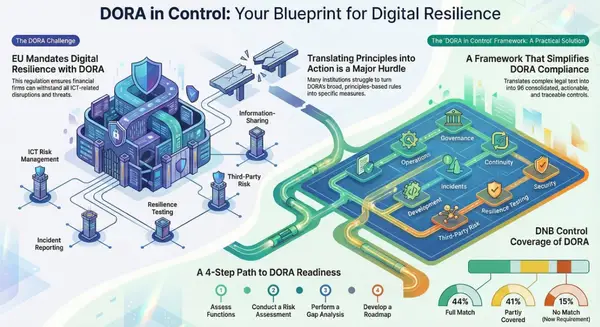The Age Verification Compliance Nightmare: How Businesses Can Navigate America's Patchwork of Conflicting State Laws

From VPN bans to biometric scans, companies face an impossible maze of regulatory requirements with severe penalties for non-compliance
For digital platforms, app developers, and online service providers operating in the United States, 2025 has delivered a compliance crisis of unprecedented proportions. By May 2025, 19 states have enacted age verification requirements for online pornography or social media, with litigation ongoing and many sites now blocking access where compliance tooling is absent. Each state has crafted its own unique approach, creating a regulatory landscape so fragmented that full compliance may be technically and financially impossible—especially for smaller companies.

The Scope of the Problem
Rather than a unified federal framework, businesses now face a patchwork of state laws with different enforcement models, varying definitions of prohibited content, and conflicting technical requirements. The biggest challenge is that each state defines what constitutes "materially harmful" content differently, with some relying on antiquated definitions that could include non-sexual content depicting same-sex couples.
Understanding your obligations under these varying state privacy rights frameworks is essential before implementing any age verification system, as the requirements often conflict with existing privacy protections.
The domino effect is accelerating: states follow one another, intensifying an incomprehensible regulatory patchwork and compliance difficulty that could lead to national regulations introducing even more complexities.
Texas: The Most Burdensome Approach
The App Store Accountability Act
Texas Governor Greg Abbott signed the App Store Accountability Act into law in May 2025, with an effective date of January 1, 2026, giving businesses only months to implement sweeping new requirements. Unlike most state laws focused solely on adult content websites, Texas takes an unprecedented approach.
The Act imposes new obligations on both app stores AND app developers, effectively giving developers "actual knowledge" of the age range of users for virtually any application, without regard to the type of application or its intended audience demographic.
Key Compliance Requirements for Developers:
App developers must assign age ratings for each app AND each in-app purchase, provide specific content justifications to app stores, create systems to verify users' age categories, implement parental consent verification, notify app stores before "significant changes" to terms of service or privacy policies, and delete personal data after verification is complete.
Given these requirements involve extensive PII (personally identifiable information) handling, companies must implement robust data governance frameworks to ensure compliance with both age verification laws and broader privacy regulations.
The Act categorizes users into four age groups: child (under 13), younger teenager (13-15), older teenager (16-17), and adult (18 or older), covering teenagers not subject to federal COPPA requirements.
What Constitutes a "Significant Change":
Developers must notify app stores of changes that alter data collection practices, affect age ratings, add monetization features like new in-app purchases or advertisements, or materially change functionality or user experience. This creates ongoing compliance monitoring burdens.
Enforcement Mechanisms:
Violations constitute "deceptive trade practices" under Texas law, enabling both private litigation and Attorney General enforcement. Private litigants may obtain economic damages, injunctive relief, and attorney's fees, while the Texas Attorney General may recover up to $10,000 per violation.
Critics warn the Act could prompt unnecessary data collection for low-risk applications like weather and sports-score services, compelling transfer of personal information to developers whose data-security practices may be insufficient.
Wisconsin & Michigan: The VPN Blocking Mandate
Wisconsin's Technical Impossibility
Wisconsin's AB 105/SB 130 passed the Assembly and held its first Senate hearing on October 8, 2025, requiring service providers that publish material harmful to minors to prevent anyone from accessing their content when connected to a VPN.
The Fundamental Problem:
Websites can only detect the masked IP addresses provided by VPNs, not users' actual locations, creating a practical impossibility for sites to selectively block VPN traffic originating specifically from Wisconsin.
This means adult sites may be forced to implement blanket VPN restrictions affecting users worldwide, or shift the burden to VPN companies themselves—requiring them to track content and block access, fundamentally undermining their core purpose.
Michigan's Extreme Censorship Bill
Michigan's HB 4938 represents the most aggressive approach to date. The "Anticorruption of Public Morals Act" would force internet service providers to monitor and block VPN connections, defining circumvention tools as "any software, hardware, or service designed to bypass internet filtering mechanisms or content restrictions, including virtual private networks, proxy servers, and encrypted tunneling methods."
ISP Compliance Burdens:
ISPs would be required to "monitor and block known circumvention tools," with promotion or sale of these tools banned in the state. Fines for non-compliance could reach $500,000.
Platforms would need to operate 24/7 surveillance systems, create trusted flagger programs, remove flagged content within 48 hours, and submit compliance reports to law enforcement.
Draconian Penalties:
Sharing "prohibited material" could bring prison sentences of 20 years and fines of $100,000. Sharing more than 100 pieces would increase penalties to 25 years in prison and $125,000 in fines.
Scope Beyond Adult Content:
The bill targets adult material, erotic ASMR, "moaning audio," AI-generated content, cosplay, digital art, written stories, and explicitly bans content depicting "a disconnection between biology and gender"—effectively targeting LGBTQ+ content.
Arizona: Biometric Verification and Maximum Penalties
Arizona's HB 2112 took effect September 26, 2025, requiring publishers of material classified as "harmful to minors" to introduce digital age checks, including commercially available biometric age verification and age estimation systems.
Arizona's mandate for biometric data collection introduces significant compliance challenges beyond traditional age verification, particularly regarding data retention, security, and the heightened risks of identity theft if biometric databases are compromised.
Unique Enforcement Mechanisms:
The law gives parents the ability to seek $10,000 per day from noncompliant platforms. Courts can impose fines up to $250,000 if failure to verify age actually results in minors accessing forbidden materials. These represent the highest financial penalties in the United States for such violations.
Data Protection Requirements:
The law prohibits age verification providers from retaining any identifying information on individuals and imposes $10,000 fines for passing any data to federal, state, or local government entities.
However, this creates a compliance paradox: companies must collect sensitive biometric or identification data to verify ages, but cannot retain it—yet they must somehow prove compliance if challenged. This documentation requirement conflicts with the data minimization mandate.
Industry Response:
Aylo, parent company of Pornhub, blocked access to its services in Arizona, mirroring actions in 21 other states where similar laws have taken effect, stating it will not comply with biometric verification mandates.
Mississippi: Universal Age Verification Across All Social Media
Mississippi takes the broadest approach, targeting all social media platforms—not just adult content sites.
The Mississippi law requires all users to verify their ages before using common social media sites ranging from Facebook to Nextdoor. The law requires social media websites to work to prevent children from accessing "harmful materials" and prohibits minors from using platforms like Instagram and YouTube without parental consent.
Compliance Requirements:
Digital service providers must make "commercially reasonable efforts" to verify users' ages, obtain parental permission for minors to have accounts, and implement strategies to prevent minors from accessing harmful material. The law prohibits collecting, selling, or sharing minors' personal information.
Penalties:
Potential penalties reach $10,000 per user for non-compliance.
Small Platform Impact:
Bluesky blocked all Mississippi IP addresses rather than comply, stating: "Building the required verification systems, parental consent workflows, and compliance infrastructure would require significant resources that our small team is currently unable to spare. This dynamic entrenches existing big tech platforms while stifling the innovation and competition that benefits users."
The Data Security Crisis
Every age verification system creates massive data security risks. Companies collecting government IDs, biometric data, or transactional information create honeypots for hackers and identity thieves. When—not if—these databases are breached, companies face additional legal exposure.
Organizations implementing age verification must have robust breach notification procedures in place, as the sensitive nature of age verification data (often including government IDs and biometric information) triggers notification requirements under multiple state breach notification laws with varying timelines and thresholds.
The compliance burden doesn't end with implementing verification—it extends to securing the data, monitoring for breaches, and responding appropriately when compromises occur. For smaller platforms, this represents yet another layer of infrastructure and expertise requirements.
The Compliance Impossibility Matrix
For a company operating nationally, consider the overlapping and contradicting requirements:
| State | Scope | Verification Method | Special Requirements | Penalties | Effective Date |
|---|---|---|---|---|---|
| Texas | All apps via app stores | Age categories + parental consent | Age ratings for every app AND in-app purchase | $10K per violation + private litigation | Jan 1, 2026 |
| Wisconsin | Adult sites | Standard methods | Must block all VPN traffic | TBD | Pending (Senate) |
| Michigan | All content statewide | N/A | ISPs must monitor/block VPNs | Up to $500K + criminal charges | Pending |
| Arizona | Adult sites (33%+ content) | Digital ID or biometric | Cannot share data with government | $10K/day + $250K if minor accesses | Sept 26, 2025 |
| Mississippi | All social media | Commercially reasonable | Parental consent required | $10K per user | July 1, 2024 |
The Compliance Cost Crisis
A legal analyst at MultiState noted that "a federal law would be somewhat more effective than a patchwork of state laws," suggesting a national standard could significantly reduce the compliance burden on digital service providers.
Resource Requirements:
Developers must build systems to receive age category information from app stores, implement verification protocols, flag "significant changes" to Terms of Service or Privacy Policies, establish notification systems to app stores, and create clear records of compliance—all while maintaining flexible systems that can adapt to fast-changing requirements across jurisdictions.
As Judge Eli Richardson stated in denying NetChoice's preliminary injunction in Tennessee: compliance costs are "quite ordinary and are routinely borne (even if only reluctantly) by business entities as a natural (if unwelcome) cost of doing business." However, this dismisses the reality that smaller platforms cannot bear these costs.
Technical Feasibility Concerns
Technical experts point out a fundamental challenge with age verification laws: websites can verify age through government-issued identification or commercially available databases, but determining what content is "materially harmful" remains subjective. Most states define it using the Supreme Court's Miller test, which requires content to appeal to prurient interest, depict sexual conduct in a patently offensive way, and lack serious literary, artistic, political, or scientific value.
The notion that companies can verify somebody's age with certainty is faulty. The gold-standard way to confirm a person's identity is by obtaining physical fingerprints or scanning their retina—short of in-person biometrics, accurate verification is nearly impossible.
The Safe Harbor Gap
Critically, safe harbor protections vary dramatically between states. Texas and Utah grant developers safe harbor based on reasonable reliance on information provided by app stores, but Louisiana's law explicitly rejects this protection. Utah's law includes an explicit private right of action, while Texas defines violations as "deceptive trade practices," opening the door to private litigation.
Strategic Compliance Recommendations
Given this impossible landscape, businesses should consider:
1. Jurisdiction-Specific Assessments
Due to differences among laws, developers cannot assume legal requirements are consistent across jurisdictions. Development and compliance teams must develop full understanding of nuances in each law and be aware of outlier requirements.
Start by conducting a comprehensive audit of your privacy rights obligations across all operating jurisdictions, as age verification laws interact with—and sometimes contradict—existing privacy frameworks.
2. PII Handling Protocols
Implement strict PII management procedures that account for the unique challenges of age verification data:
- Minimum retention periods (many states require immediate deletion)
- Purpose limitation (data can only be used for age verification)
- Access controls (limit who can view verification data)
- Encryption requirements (protect data in transit and at rest)
3. Biometric Data Governance
For companies considering biometric age verification, additional safeguards are essential:
- Consent mechanisms that comply with biometric privacy laws (Illinois BIPA, Texas, Washington)
- Enhanced security measures for biometric databases
- Vendor due diligence for third-party verification providers
- Cross-border data transfer considerations
4. Breach Response Planning
Given the sensitive nature of age verification data, robust breach notification protocols are non-negotiable:
- Monitoring systems to detect unauthorized access
- Incident response teams trained on age verification data breaches
- Pre-drafted notification templates for different state requirements
- Legal counsel relationships for rapid breach assessment
5. Uniform Compliance vs. Geo-Blocking
Companies must decide whether to:
- Implement the most restrictive state's requirements nationwide (over-compliance)
- Build state-specific systems (technically complex and expensive)
- Block entire states (revenue loss and market abandonment)
6. Monitor Legal Challenges
Multiple laws face legal challenges on First Amendment, privacy, and interstate commerce grounds. Mississippi's law was initially blocked by a district court, though enforcement was later allowed. Arkansas, California, Florida, Ohio, and parts of Texas laws have been blocked or declared unconstitutional.
7. Engage in Federal Advocacy
Congress could require device-level age verification tied to user accounts, allowing settings to carry over across devices and preempting state laws with a unified, privacy-respecting approach.
8. COPPA Trigger Awareness
Consider additional compliance obligations triggered by receiving notice that individuals under 13 are using your app, including privacy obligations under the federal Children's Online Privacy Protection Act.
9. Document Everything
Build robust age verification processes, maintain clear records of compliance, train staff on requirements, and monitor legal developments, as court challenges could delay or reshape enforcement.
The Broader Privacy Law Context
Age verification requirements don't exist in isolation. State privacy obligations continue to become more complex and varied. Maryland requires data protection assessments for each algorithm used, Montana creates novel definitions for "heightened risk of harm to minors," and Connecticut requires privacy policies to disclose whether controllers collect, use, or sell personal data for training large language models.
Companies must navigate age verification laws alongside comprehensive privacy statutes, creating compliance matrices that can easily overwhelm legal and technical teams.
Industry Consolidation Effect
The compliance burden creates dynamics that entrench existing big tech platforms while stifling innovation and competition. Smaller providers cannot afford the substantial infrastructure investments, developer time, complex privacy protections, and ongoing compliance monitoring these laws demand.
This consolidation effect runs directly counter to stated policy goals of protecting children and promoting competition.
The Constitutional Uncertainty
The Supreme Court ruled 6-3 that states may require age verification for websites with significant adult content, with Justice Thomas writing that such statutes advance the state's important interest in shielding children from sexually explicit content.
However, Justice Brett Kavanaugh wrote a concurrence asserting that Mississippi's broader social media law is "likely unconstitutional" but said challengers had not "sufficiently demonstrated" harm warranting immediate relief.
NetChoice argued that Mississippi's law unconstitutionally restricts free speech through "monitoring-and-censorship requirements for vague categories of speech," limiting individuals' access to important information.
What Comes Next
2025 has been another active year for children's and teens' privacy legislation, with Louisiana and Georgia laws taking effect in July (though Georgia's is currently enjoined), and Arkansas, Connecticut, Montana, Nebraska, and Vermont enacting age-appropriate design code style laws.
More states are considering app store laws, with over a dozen states reviewing similar bills. Nine states are considering the most stringent approach requiring government-issued identification submission.
The Bottom Line for Businesses
Companies face three unpalatable choices:
- Over-comply nationwide using the most restrictive state's requirements—expensive and potentially privacy-invasive beyond what most states require
- Build complex geo-specific systems—technically challenging, enormously expensive, and still vulnerable to legal challenges in each jurisdiction
- Exit markets—abandon users in states with compliance requirements beyond company resources, reducing competition and consumer choice
As more states have passed similar laws, businesses are increasingly forced to adopt uniform compliance strategies across all U.S. users—or risk violating one state's rules.
Without federal preemption or substantial legal intervention, the age verification compliance crisis will only deepen, with small platforms continuing to geo-block states while large tech companies absorb costs and entrench their market positions—exactly the opposite of what policymakers claim to want.
For companies without unlimited compliance budgets, the message is clear: the American internet is fragmenting, and there may be no viable path to full compliance.
Related Compliance Resources:






